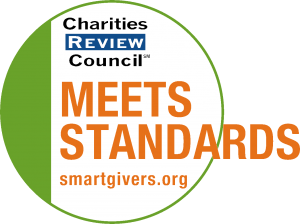Impact and Programs
Accomplishments
The Humanities Center continues to positively shape our state, bridging differences and inspiring individuals to be informed and engaged. MHC’s programs utilize personal stories to build empathy and bring people together in meaningful conversation. Impacts includes: awarded more than $2 million in grants to 57 organizations and agencies including children’s museums, non-profits, state agencies, and county governments; 75,300 participants attended 140 events, building relationships, listening to stories, and learning from one-another; a record 42,000 people visited ‘Why Treaties Matter: Self-Government in the Dakota and Ojibwe Nations’ exhibit during its second statewide tour of eight locations; 1,000 participants at a week-long institute and workshops designed to increase engagement by creating culturally safe and conducive learning environments; 360 people learned about Minnesota history from Dakota people on nine day-long immersive experience; 5,830 visits to the online searchable database of ready-to-use videos, teacher guides, and readings support efforts to encourage inclusion of missing stories (‘’Absent Narratives’) in classrooms and workplaces across the state; 11,000 individuals utilized our Event Center facilities for 375 meetings, retreats, and special events; and MHC utilized the power of narrative to grow our statewide impact with a new large-scale collaborative project – Truth and Transformation: Changing Racial Narratives in Media. The project culminated at a two-day statewide conference that helped 300 media professionals change their approach and practices to more justly represent the lived experiences, stories, and perspectives of the people represented. Partners include Hamline University, KMOJ-FM, Minnesota Public Radio, Pillsbury United Communities, and Three Sixty Journalism.
Current Goals
GOAL 1: Promote the power of the humanities to change systems.
OBJECTIVE1: Increase awareness of the humanities as a means to generate ideas, solve problems and influence change. STRATEGY 1: Increase awareness of MHC’s work and impact.
OBJECTIVE 2: Deepen and cultivate relationships with existing and new partners. STRATEGY 2: Engage in strategic, mutually beneficial partnerships with POCI communities and organizations.
OBJECTIVE 3: Position MHC as a connector, convener and catalyst and thought leader. STRATEGY 3: Refresh MHC brand identity to position MHC as humanities leader.
GOAL 2: Ensure that the humanities are broadly relevant and accessible.
OBJECTIVE 1: Deepen engagement in all corners of Minnesota by delivering high-quality offerings (e.g., engagement opportunities, events, and resources/products). STRATEGY 1: Strengthen relationships and increase opportunities for creatives across Minnesota by increasing awareness and profile of the humanities.
OBJECTIVE 2: Position MHC as a premier regional resource that brings people together to increase human connection and collectively find solutions. STRATEGY 2: Increase life-long learning program offerings and initiate new life-long learning program offerings.
OBJECTIVE 3: Position MHC as a premier regional resource that brings people together to increase human connection and collectively find solutions. STRATEGY 3: Increase public engagement offerings and initiate new public engagement offerings.
GOAL 3: Improve capacity to be a high-performing organization.
OBJECTIVE 1: Create a healthy workplace culture. STRATEGY 1: Express and implement MHC values and employment philosophy.
OBJECTIVE 2: Improve systems and processes to achieve operational excellence. STRATEGY 2: Achieve funding diversity and sustainability.
OBJECTIVE 3: Improve systems and processes to achieve operational excellence. STRATEGY 3: Achieve financial management sustainability.
OBJECTIVE 4: Improve systems and processes to achieve operational excellence. STRATEGY 4: Increase MHC operational effectiveness and board capacity for strategic governance.
Community or Constituency Served
From FY19 to FY20, the Humanities Center served more than 88,610 participants at 125 events with more than 30% offered virtually for communities across Minnesota. Since the Arts and Cultural Heritage Legacy Fund became available in 2009, our reach has broadened to include more cultural groups, children’s museums, civics education programs, cultural organizations, cities and local municipalities, and state agencies. The Humanities Center continues to deepen its partnership with state government, building on existing relationships and fulfilling our promise to provide humanities leadership, programs, and resources in Minnesota.
The Humanities Center continues to prioritize stories of communities often marginalized or absent from dominant culture and fosters collaboration between organizations addressing community-identified goals and opportunities. For example, the Minnesota Prison Writing Workshop will create new platforms to help incarcerated writers present their stories and voices to broader audiences at prisons in Faribault, Lino Lakes, Moose Lake, Shakopee, and Stillwater. We also published an impactful new book, “Crossroads: An Anthology of Resilience and Hope by Young Somali Writers.”
Geographic Area Served
The Humanities Center serves communities throughout the entire state of Minnesota as opportunities arise.
